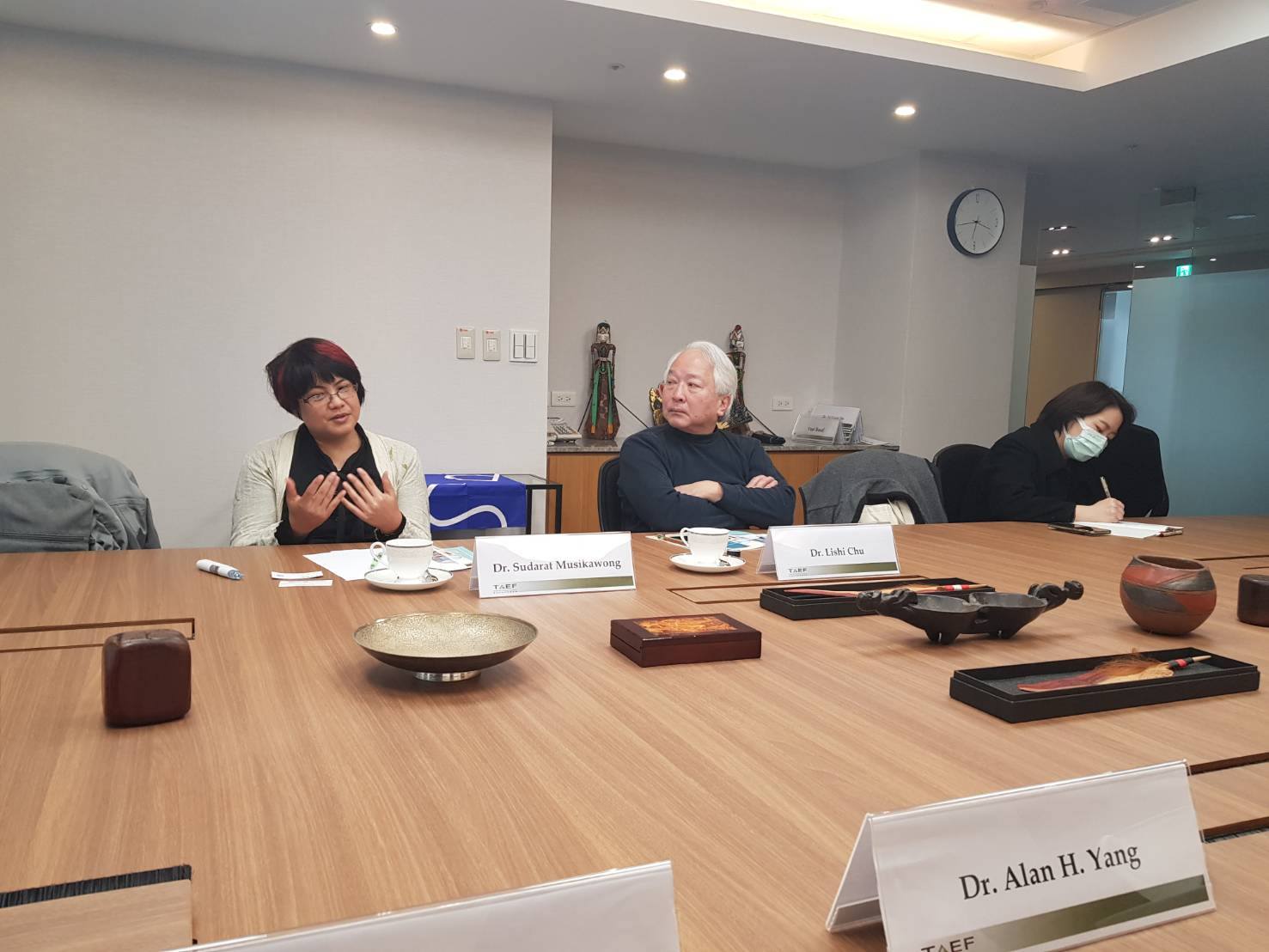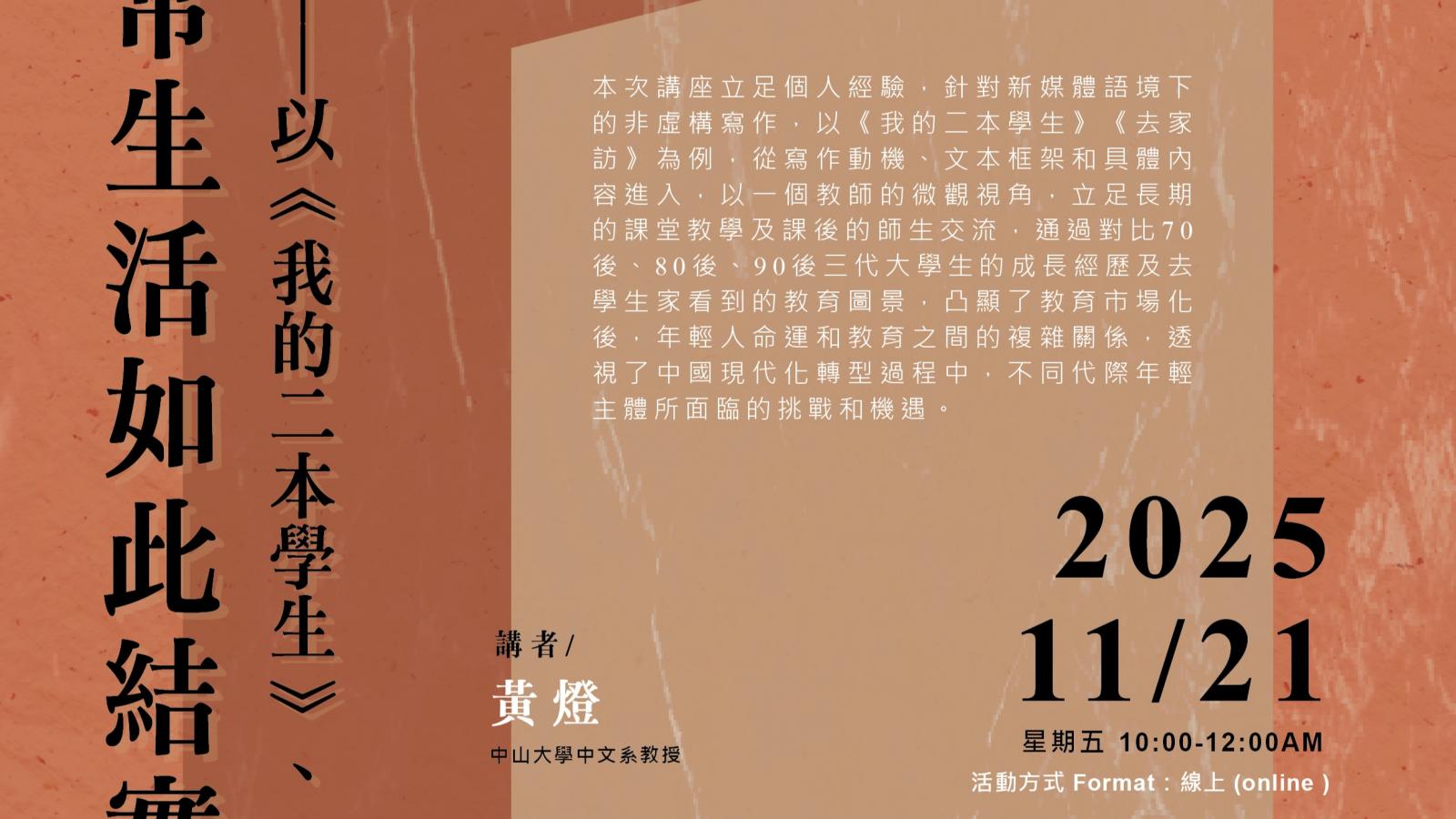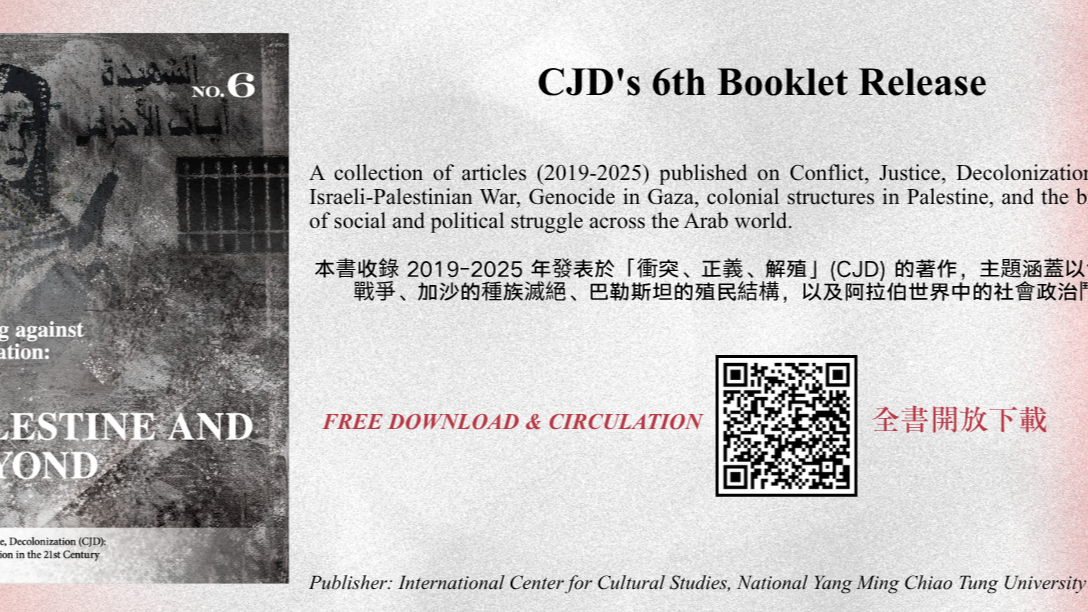

Between Democratic Labor Movements and Migrant Worker Rights: Comparing NGO and Labor Organizing in Thailand and Taiwan—A Talk by Dr. Sudarat Musikawong
2020-04-03
Between Democratic Labor Movements and Migrant Worker Rights: Comparing NGO and Labor Organizing in Thailand and Taiwan—A Talk by Dr. Sudarat Musikawong (3/13/2020)

Dr. Sudarat Musikawong is Associate Professor of Sociology at the Institute for Population and Social Research at Mahidol University in Thailand. She received her Ph.D. and M.A. in sociology from the University of California at Santa Cruz and her B.A. in Interdisciplinary Studies from the University of California at Santa Barbara. As an ethnographer, Dr. Musikawong’s work connects macro-socio-economic historical conditions, social, political, and national circumstances, migration, and cultural production. The talk she gives at the Taiwan-Asia Exchange Foundation concerns the status of migrant worker rights in Thailand and Taiwan in relation to labor movements and NGO work.
Dr. Musikawong began her talk by recounting her research trajectory: her work on migrant workers began in 2005, when she studied Thai migrant workers in the U.S. From 2013 to 2016, she moved on to the topic of documented and undocumented migrant workers in Korea. Since 2016, she has collaborated with faculty members from National Chiao Tung University. Her current project examines the broker system and potentials for direct hiring for migrant workers in Taiwan.
Her main concern as a sociologist working on democratic movements is how NGOs and trade unions could approach the conundrum of temporary foreign migrant workers. Immigration policies in Asia (including Thailand, Taiwan, and South Korea) tend to be exclusionary, with little promise for citizenship or even residency for migrant workers. The issue with integrating migrant workers into local societies has become even more urgent with the outbreak of the coronavirus, since migrant workers are often seen as a security threat.
Dr. Musikawong went on to compare the situation of migrant workers in Taiwan and Thailand. Taiwan is an aged society: the majority of the Taiwan population is no longer viable workforce, so Taiwan has had to import foreign workers, especially for the construction of its infrastructure. Historically, Taiwan opened up to migrant workers since the late 1980s. Migrant workers from Thailand helped build the MRT system, as well as Highway No.2. Rapid economic development in Taiwan has relied on the labor of migrant workers, yet Taiwan continues to deny both residency and citizenship rights to these workers.
Thailand, on the other hand, is an aging society, with a larger territory and greater varieties of foreign investments and economic activities. It therefore has the capacity to host over 4 million migrant workers. Thailand itself does not send a great number of workers overseas, but among Thai migrant workers, the majority work in Taiwan.
The main difference between migrant worker situations in Taiwan and Thailand is in the form of migration: due to the larger territory and needs for migrant workers in the agricultural industry, Thailand has much more migrant workers entering the country as families. In this context, governments need to consider comprehensive immigration reform that promises a more inclusive multiculturalism in order to accommodate a better Asian future.
Taiwan and Thailand share one similarity regarding the migrant worker issue: both have weak trade unions. Both Taiwan and Thailand have low rates of unionization, but they also host active NGOs to handle with migrant worker issues. While Thailand does not allow migrant workers to serve as head of trade unions, Taiwan has recently opened up to migrant workers forming their own trade unions. Dr. Musikawong’s speculations is that this difference may be the result of increasing pressure on the corporate sector to take responsibility for labor rights violations or illegal placement fees in Taiwan.
As the world becomes increasingly interconnected, however, fair labor practices are no longer the responsibility of any single country. In the example of Thailand importing tuna from Taiwan’s fishing industry, corporate social responsibilities in Thailand’s canning and production industries and in Taiwan’s fishing practices both need to be carefully monitored to ensure legal labor conditions.
Both Thailand and Taiwan are facing the issue of legal loopholes that allow corporations to exploit migrant workers, especially workers in long-haul seafaring, domestic workers, and caretakers. Thailand’s solution was for migrant workers in the domestic care sector to collaborate with Thai workers to form workers’ collectives that practice direct hiring. Taiwan’s electronics industry, on the other hand, enforces RBA (Responsible Business Alliance) to ensure the absence of placement fees by charging employers. But these successful practices need to be adapted across sectors to protect migrant worker rights in general.
Dr. Musikawong also pointed out that NGOs and trade unions need to be more proactive. NGOs and trade unions in Taiwan are good at calling attention to migrant labor issues, but often fail to sustain that attention in the absence of incidents. In Thailand, NGOs and trade unions partner with the government to promote reforms. These government agencies include the Ministry of Labor, the Ministry of Justice, and the Public Health Department. Many changes require the involvement of not only the local government, but foreign governments as well.
For her visit to Taiwan-Asia Exchange Foundation, Dr. Musikawong was interested in hearing about the efficacy in having different government agencies handling migrant worker issues. For example, in Taiwan, migrant workers in the export processing zones are currently under the management of the Ministry of Economic Affairs. This is not the case in Thailand, where migrant labor affairs are handled by the Ministry of Labor.
Dr. Musikawong concluded her talk by saying that the specificities of sectors need to be taken into consideration when we think about how to better protect migrant workers and to integrate them into our societies. She suggests that the present moment provides a great opportunity for Thailand and Taiwan to learn from each other in terms of how to change the system for the better.
During the Q&A period, Dr. Hsin-Huang Michael Hsiao, the Chairman of Taiwan-Asia Exchange Foundation, commented that the Foundation is interested in how Dr. Musikawong’s research can be put into practice in Taiwan. He explains that broader comparative studies on migrant worker rights within and between Southeast Asian countries would be vital to reforming Taiwan’s migrant worker policies. The Foundation is also interested in potentials for scholars and NGOs from Thailand and Taiwan to work together in the future. Other participants discussed labor law reforms in the context of Taiwan’s New Southbound Policy, and the specific circumstances surrounding domestic workers. Dr. Musikawong responded that we need to reconsider the responsibility of the welfare state as well as work on more creative ways to form partnerships between trade unions and NGOs to change the status quo.
By Jui-an Rae Chou

近期新聞 Recent News

Report|Conceptualizing Digital Governance in the Age of Semiconductors: A Critical Review of Keywords and Concepts
2025-12-03
more

New Publication | Writing against Occupation: Palestine and Beyond (CJD Booklet No.6)
2025-11-12
more